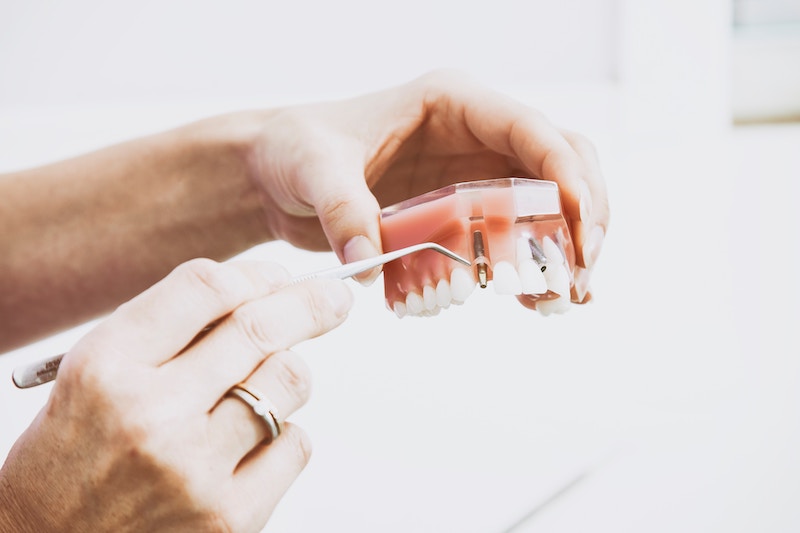Here’s Exactly What to Do When You Break a Tooth
Help! I broke my tooth! What should I do!
Here at Batchelor Dentistry, my team and I receive frantic calls like this quite often. We’re always so happy to help, but even more happy that the individual has called us. That’s because if you’ve broken, chipped, or cracked a tooth, the first thing you should always do is contact your dentist.
Keep reading to learn why calling your dentist right away after a dental injury is important, and how you can expect your dentist to react and treat your injury in this type of situation.
Suffering a broken or missing tooth? We’re here to help.
Contact our Harrisonburg emergency dentist at (540) 432-9992
What causes a tooth to break?
A high-impact accident is not the only cause of a broken tooth! In fact, some people experience cracked, chipped, and fractured teeth from something as seemingly ordinary as eating breakfast!
In general, tooth damage often occurs as a result of…
Jaw clenching
Teeth grinding
A cavity or “tooth decay”
Chewing on hard or sticky objects
Trip and falls
Being hit in the face
Minor fractures are not always easy to recognize. But one good sign that you’ve broken or damaged a tooth is if you suddenly experience sudden pain in your teeth while eating.
What happens if you don’t fix or replace a damaged tooth?
It can be a little embarrassing to have a chipped or missing tooth — especially if the damaged tooth is toward the front of your mouth. But even though every person deserves to feel comfortable in their own smile, appearance is only a small part of the reason why damaged teeth are such a big problem.
Thanks to the natural wear and tear of using your teeth, a damaged tooth will only get worse over time and can put a serious strain on your dental and overall health.
Tooth decay & infection
A damaged tooth is difficult to keep clean. Bacteria will build up and plaque is likely to form, leading to cavities and gum disease.
Additionally, the longer you wait to see a dentist, the more you risk an infection in the tooth's pulp – which can spread to the gum and bone supporting your tooth.
Pain & discoloration
If your tooth is cracked or been chipped deeply, it could affect the health of the tooth’s nerve. This can cause extreme pain. Additionally, as the nerve starts to die, it can lead to the discoloration of your tooth.
Problems in neighboring teeth
When you break a tooth, you lose significant tooth structure. Because of this new shape, biting down and chewing on this altered tooth can contribute to new chips and cracks over time.
If you’re missing the tooth completely, neighboring teeth may start to shift and move into the space it previously occupied. This can also cause pain in your jaw and lead to TMJ issues.
What should you do about a broken tooth until you can see a dentist?
An emergency dentist will get you in for a broken tooth appointment right away, but there are a few things you can do in the minutes and potentially hours after you’ve broken a tooth:
Step 1: Call your dentist and schedule an appointment (or have someone do this for you). They can also advise you on what to in the interim based on your specific situation.
Step 2: If you can find the piece of tooth that has chipped off, hold on to it. The dentist may be able to reattach it.
Step 2: Rinse your mouth with warm water. If you’re bleeding, apply light pressure with a piece of gauze or a tea bag.
Step 3: Take an over-the-counter pain med if needed.
Step 4: Apply a cold pack to your check or lips if the break was caused by physical trauma to the face or jaw.
Note: Unless you are facing a life-threatening injury, avoid going to the ER for a broken tooth. Not only is the emergency room unequipped to solve your dental health problem, but the visit usually costs 10 times more than seeing a dentist to address the same issue.
How will a dentist fix a broken tooth?
Here at Batchelor Dentistry, when someone comes in with a broken tooth, we look at their specific situation and provide recommendations based on their individual needs and goals.
We’ll start by taking x-rays to better understand what’s that’s going on in your mouth. From there, we’ll discuss your options, making sure you have all the information and understand how the different treatment options compare so you can make an informed decision.
Here are a few options we may recommend:
Fillings, bonding, or veneers
If only a tiny piece of enamel or filling has been chipped off, we may simply recommend a replacement filling. Another option would be some bonding material or a veneer to restore the chipped portion.
Root canal & crown
A crown is a good option if only a small portion of the tooth has broken off. The crown will be placed on top of your damaged tooth, restoring and protecting its shape and function. If the break extends down into the pulp or nerve of your tooth, the a root canal may be necessary as well.
Extraction & implant
If you’re dealing with a very severe fracture and restoring the natural tooth is not an option, an extraction may be recommended. In this case, you could replace and restore the missing tooth with a dental implant and crown (among other options, like a dental bridge).
Bonus: Tips for preventing broken teeth in the first place
Accidents happen. But while chipped, cracks, and breaks in your teeth are not completely preventable, there are some steps you can take to make your teeth less susceptible to fractures:
Avoid eating or chewing on hard objects like ice, popcorn kernels, cherry pits, or pens
Don't clench or grind your teeth (talk to your dentist about about getting a mouthguard to protect your teeth at night!)
Wear a mouthguard when playing contact sports
See your dentist every 6 months to catch any decay, old fillings, or loose crowns
We’re here to help!
Don’t wait to get the care you need. Our team provides emergency dental appointments and is here to help fix your broken tooth and restore your smile and health. Call us today at (540) 432-9992.

Dr. Caitlin Batchelor
Dr. Caitlin Batchelor earned her Doctor of Dental Surgery degree from Virginia Commonwealth University’s Medical College of Virginia. She later completed a 2-year postgraduate General Practice Residency at Wake Forest University Medical Center. Since joining this practice in 2013, Dr. Batchelor has been committed to providing individualized dental care to the specific needs and desires of her patients, taking the whole person and their unique qualities into consideration.






